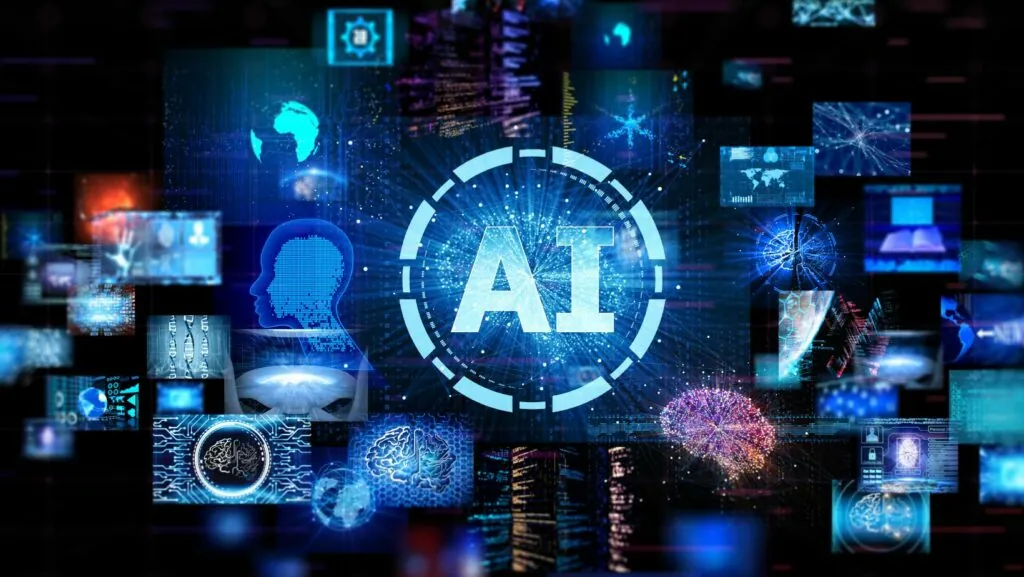In a world where coding skills can turn coffee into code, ChatGPT emerges as the quirky sidekick every programmer didn’t know they needed. Imagine having a coding buddy who never sleeps, doesn’t complain about caffeine levels, and can whip up snippets of code faster than you can say “syntax error.” Sounds too good to be true, right?
Table of Contents
ToggleOverview of ChatGPT Coding
ChatGPT offers significant advantages for coding tasks. This AI tool generates code snippets swiftly and adapts to various programming languages. It assists in tasks ranging from simple functions to complex algorithms, catering to beginner and experienced developers alike.
Developers appreciate how ChatGPT’s suggestions integrate seamlessly into their workflows. Using natural language prompts, they can ask specific questions about coding issues, getting tailored responses. Immediate feedback on syntax errors or logic problems enhances the coding experience.
Many programmers value the ability of ChatGPT to provide real-time support. This capability reduces brainstorming time and accelerates problem-solving. Moreover, it can suggest alternative solutions to coding problems, sparking creativity and encouraging exploration of different approaches.
ChatGPT excels in code documentation as well. It can explain code functionality and generate comment sections that improve code clarity. This feature ensures that projects remain understandable, benefiting future collaborators.
Compatibility with various integrated development environments (IDEs) also stands out. ChatGPT can function alongside popular tools, boosting efficiency without disrupting existing workflows. Its versatility allows for quicker learning curves, enabling users to overcome barriers in unfamiliar programming languages.
User feedback consistently highlights the improvement in productivity. Since ChatGPT can automate repetitive tasks, developers focus on more complex challenges. As a result, coders experience reduced fatigue, empowering them to maintain higher levels of creativity and engagement with their projects.
Features of ChatGPT Coding
ChatGPT provides a range of features that enhance the coding experience, making it an essential tool for developers.
Natural Language Processing Capabilities
Natural language processing enables ChatGPT to understand and interpret user queries effectively. It comprehends instructions in plain English, allowing anyone to communicate coding needs without technical jargon. Responses remain accurate across various programming languages, providing tailored solutions. Therefore, users can ask for code snippets, explanations, or even troubleshooting help in straightforward terms. This capability streamlines the coding process, catering to both novice and experienced programmers. As a result, the interaction becomes more intuitive, fostering an environment where ideas can flow freely and efficiently.
Code Generation and Debugging
Code generation forms a core function of ChatGPT, producing snippets quickly and accurately. Developers can request specific functionalities, and the AI generates relevant code blocks almost instantly. Debugging also benefits from this feature, as it identifies syntax errors and logic flaws in real time. Hence, suggestions for fixes appear promptly, reducing the overall development time. In addition, this tool adapts its outputs based on user feedback, enhancing the quality of generated code. Users often find that integrating these solutions facilitates smoother coding sessions, allowing them to concentrate on creative problem-solving.
Strengths of ChatGPT in Coding
ChatGPT offers remarkable strengths that significantly enhance coding experiences for programmers. This AI tool streamlines various coding processes through its innovative features.
Speed and Efficiency
Speed stands out as a core strength of ChatGPT. Code snippets generate rapidly, saving valuable time in development cycles. Immediate suggestions help developers overcome roadblocks without lengthy delays. When working on debugging, it swiftly identifies errors, laying out potential fixes clearly. Efficiency improves as repetitive tasks automate, allowing programmers to concentrate on complex challenges. Users report noticeable productivity boosts, achieving more in shorter periods. ChatGPT functions tirelessly, providing support whenever needed, day or night. Real-time assistance transforms how coders approach their projects, fostering a more streamlined workflow.
Versatility in Programming Languages
Versatility defines ChatGPT’s coding capabilities. It supports numerous programming languages, making it adaptable for various projects. From Python to JavaScript, it generates relevant code snippets intelligently. Developers switch between languages seamlessly, with ChatGPT adjusting to the specific syntax and requirements instantly. Beginners benefit from guidance on language features, while experienced developers appreciate the nuanced suggestions. This adaptability enhances collaboration among team members with varying levels of expertise. By catering to such diversity, ChatGPT enriches the coding environment. Users find themselves exploring new languages with confidence and ease.
Limitations of ChatGPT Coding
ChatGPT possesses valuable coding capabilities. However, several limitations impact effectiveness.
Context Understanding
ChatGPT struggles with context comprehension. When faced with nuanced programming requests, it may miss crucial details. Without full context, it generates code that doesn’t meet expectations. For example, asking for a function without specifying data types or requirements can lead to irrelevant outputs. Misinterpretations can occur in more complex requests. The model lacks persistent memory, meaning it cannot track longer interactions effectively. Some users notice this issue when shifting topics in a conversation, leading to less relevant suggestions. Ensuring clarity in queries helps improve output quality.
Complexity of Tasks
ChatGPT encounters challenges with complex tasks. While simple functions can be generated swiftly, intricate algorithms require deeper understanding and problem-solving capabilities. The tool may lack the expertise needed for advanced programming problems, which can result in incomplete or incorrect code. For tasks requiring nuanced decision-making or creative solutions, reliance on AI might not always yield optimal results. Additionally, integrating third-party libraries or frameworks may confuse the model, as it cannot always provide context-specific advice. Developers often find themselves needing to validate or refine AI-generated code, particularly for sophisticated projects.
User Experiences and Feedback
Users consistently report positive experiences when integrating ChatGPT into their coding practices. Many developers express appreciation for the tool’s efficiency in generating code snippets quickly. Real-time support stands out as a key feature, with users highlighting its ability to provide immediate feedback on syntax errors.
Notably, adaptations to various programming languages enhance the overall experience. Beginners often feel overwhelmed by complex coding tasks, but ChatGPT simplifies these challenges, offering guidance and suggestions that boost confidence. Some experienced developers also find it valuable for brainstorming and discovering alternative solutions.
Communication with ChatGPT is straightforward. Users can describe coding needs in plain language, making interactions feel intuitive. Feedback indicates that this is especially useful in reducing the time spent on mundane tasks. Many find that automating repetitive aspects of coding not only saves time but also allows for deeper focus on creative problem-solving.
Nonetheless, challenges exist that impact user experiences. Instances where ChatGPT struggles with context comprehension are common. Developers often mention that it can miss nuanced details in requests, leading to less relevant outputs. The tool’s lack of persistent memory can also hinder productivity during longer sessions, requiring users to repeat certain contexts for clarity.
Moreover, while ChatGPT excels at generating simple functions, users highlight its limitations when tackling complex problems. Many developers find they still need to validate or adjust AI-generated code to meet the demands of sophisticated projects. Such adjustments are crucial when dealing with intricate algorithms or third-party libraries, underscoring the collaborative nature of using AI in coding.
ChatGPT has emerged as a powerful ally for programmers at all skill levels. Its ability to generate code quickly and provide real-time feedback enhances productivity and fosters creativity. While it streamlines mundane tasks and simplifies complex challenges, developers must remain vigilant about its limitations. Effective collaboration between human ingenuity and AI capabilities is essential for achieving optimal results. As the technology continues to evolve, the potential for ChatGPT to transform coding practices becomes increasingly evident. Embracing this innovative tool can lead to a more efficient and engaging coding experience.





